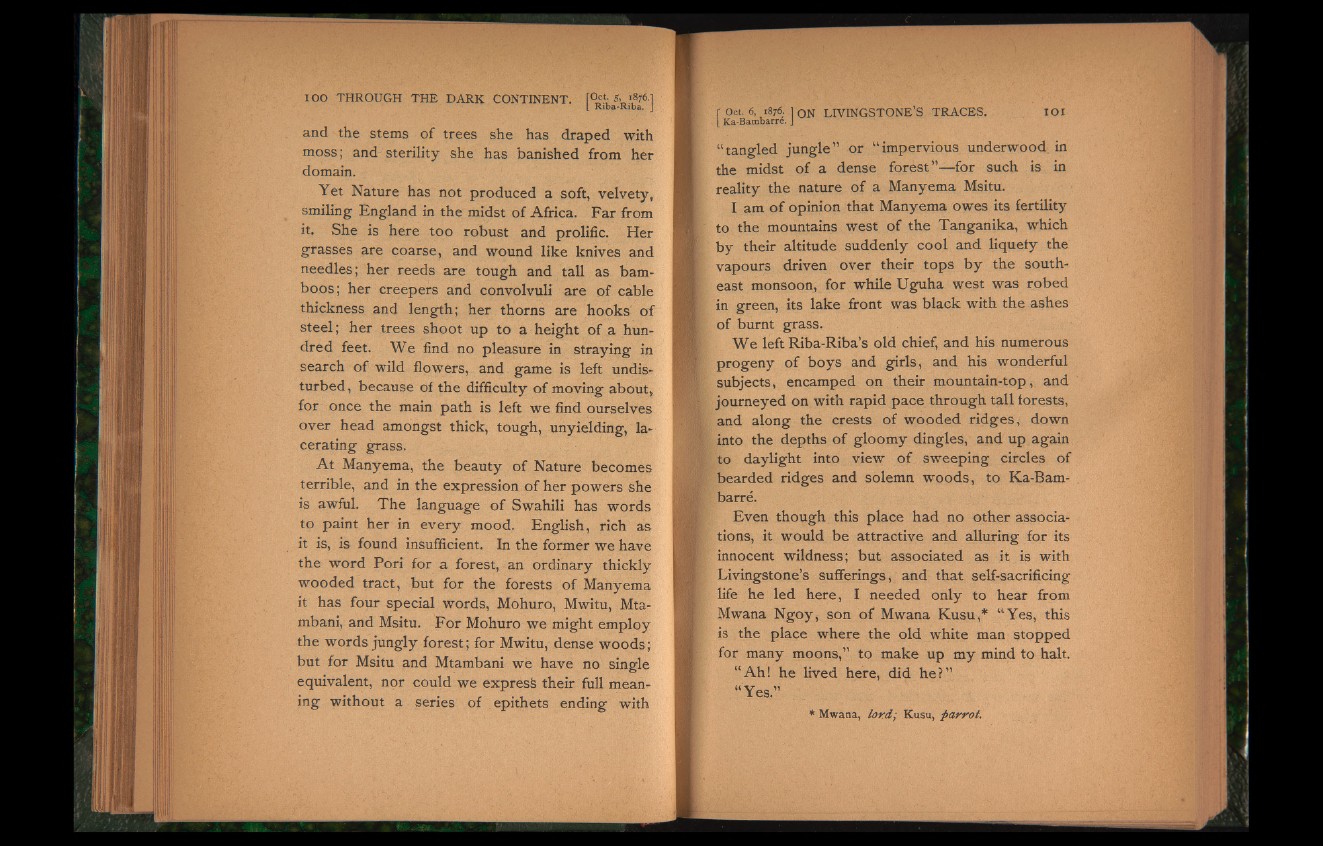
and the stems of trees she has draped with
moss; and sterility she has banished from her
domain.
Yet Nature has not produced a soft, velvety,
smiling England in the midst of Africa. Far from
it. She is here too robust and prolific. Her
grasses are coarse, and wound like knives and
needles; her reeds are tough and tall as bamboos;
her creepers and convolvuli are of cable
thickness and length; her thorns are hooks of
steel; her trees shoot up to a height of a hundred
feet. We find no pleasure in straying in
search of wild flowers, and game is left undisturbed
, because of the difficulty of moving about,
for once the main path is left we find ourselves
over head amongst thick, tough, unyielding, lacerating
grass.
At Manyema, the beauty of Nature becomes
terrible, and in the expression of her powers she
is awful. The language of Swahili has words
to paint her in every mood. English, rich as
it is, is found insufficient. In the former we have
the word Pori for a forest, an ordinary thickly
wooded tract, but for the forests of Manyema
it has four special words, Mohuro, Mwitu, Mta-
mbani, and Msitu. For Mohuro we might employ
the words jungly forest; for Mwitu, dense woods;
but for Msitu and Mtambani we have no single
equivalent, nor could we express their full meaning
without a series of epithets ending with
“ tangled jungle” or “ impervious underwood, in
the midst of a dense forest”— for such is in
reality the nature of a Manyema Msitu.
I am of opinion that Manyema owes its fertility
to the mountains west of the Tanganika, which
by their altitude suddenly cool and liquefy the
vapours driven over their tops by the southeast
monsoon, for while Uguha west was robed
in green, its lake front was black with the ashes
of burnt grass.
We left Riba-Riba’s old chief, and his numerous
progeny of boys and girls, and his wonderful
subjects, encamped on their mountain-top j and
journeyed on with rapid pace through tall forests,
and along the crests of wooded ridges, down
into the depths of gloomy dingles, and up again
to daylight into view of sweeping circles of
bearded ridges and solemn woods, to Ka-Bambarre.
Even though this place had no other associations,
it would be attractive and alluring for its
innocent wildness; but associated as it is with
Livingstone’s sufferings, and that self-sacrificing
life he led here, I needed only to hear from
Mwana Ngoy, son of Mwana Kusu,* “ Yes, this
is the place where the old white man stopped
for many moons,” to make up my mind to halt.
“Ah! he lived here, did he?”
“ Yes.”
* Mwana, lord; Kusu, parrot.